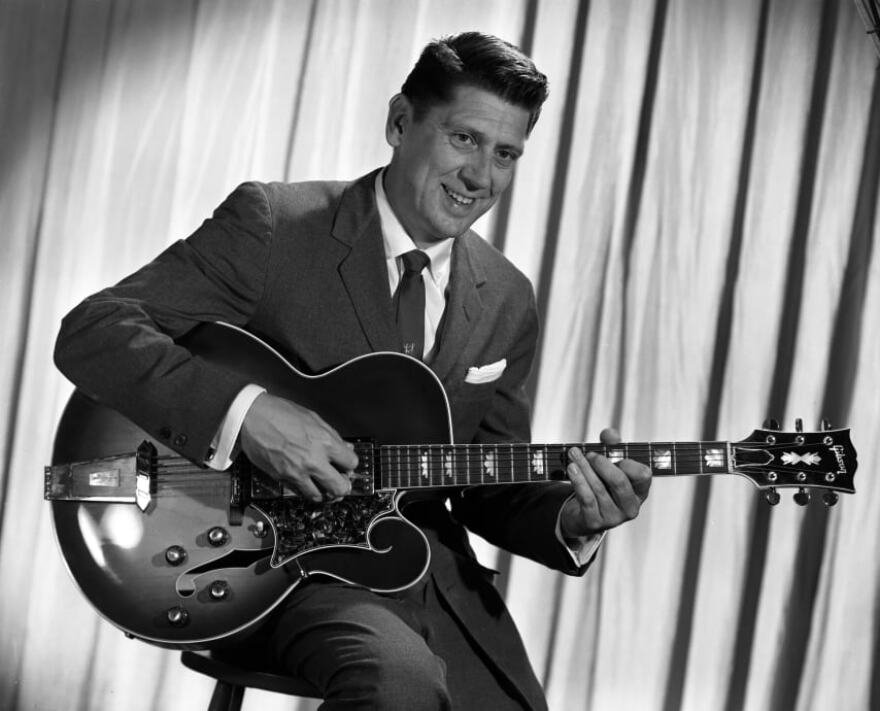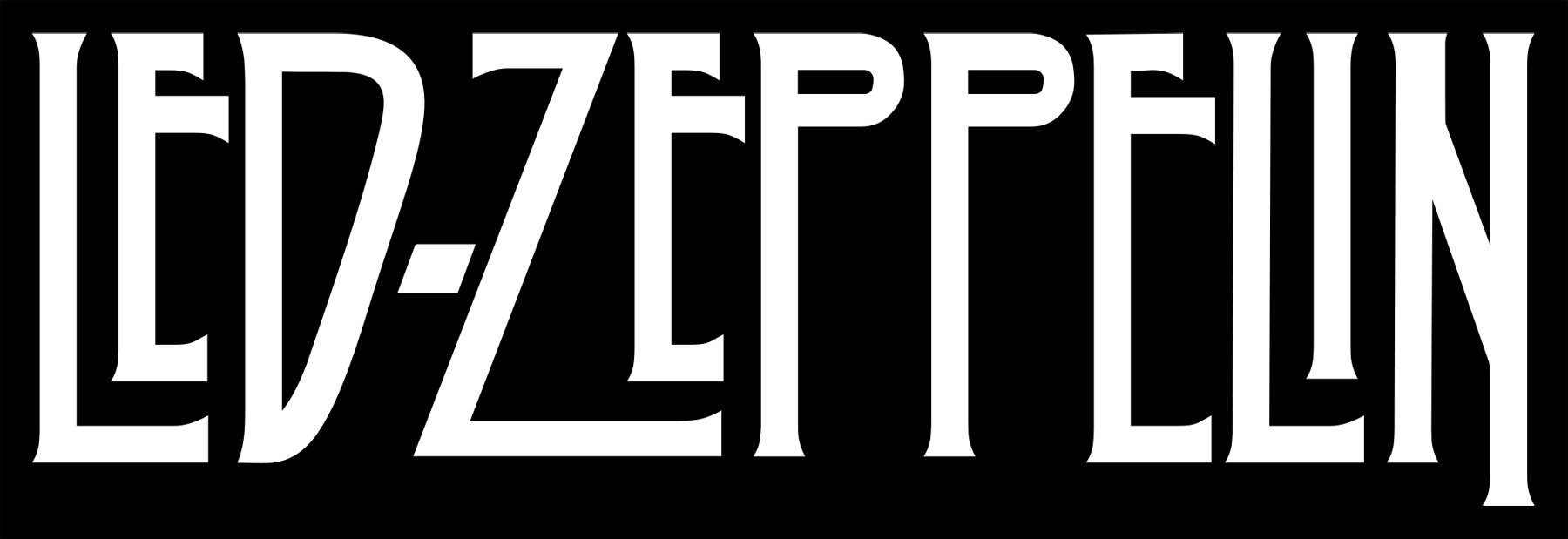Uriah Heep Family Tree
Metal Family Tree
This is a project aimed at making it easy to see who inspired the bands you love or even hate. For this I try not to use any influences that the band don’t claim themselves. There will be a focus on predecessors but successors will be added as they site the band. These trees become more and more interactive as new bands are added, allowing you to click any band that has a tree and jump to it.
We want our lists to be better. If you know something that belongs on this list, let us know. When in doubt we will leave it out, so we need reliable sources.
Uriah Heep have had a long career. Their sound is not without evolution but generally they might be categorized as Progressive Hard Rock. In the early days they even dabbled in Early Heavy Metal along side some of the earliest of the genera. Although some members have had very long stints in the band, guitarist Mick Box is the only member to be in the band since the beginning. David Byron was the vocalist for the early albums. He was co-founder along with Mick and remained in the band till 1976; he shared in at least some writing credits on every album but his last. Ken Hensley with Uriah Heep through 1980. He played keyboard, guitar, did backing vocals and occasional lead. He was a primary contributor to the writing and on some albums wrote nearly everything. Lee Kerslake was on drums starting on their 4th album and remained one of the longest running members of the band with writing credits on most albums. In 1976 Trevor Bolder joined on bass and was a contributing member for his very long stay in the band.
At a time there was a big line-up shift in Urhia heep following the return of Lee after his stint with Ozzy. Lee and Mick were joined by Bob Daisley on bass, John Sinclair on keys, and Peter Goalby on vocals this line up would do two albums before it began to change again with Trevor returning for what would have been the third. This line up would all contribute to writing during that time.
Following that line up, vocalist Bernie Shaw and keyboardist Phil Lanzon joined for their 1989 album Raging Silence. They have remained in the band ever since. In that time Bernie only has two writing credits, but Lanzon became a prominent writer.
Phase one
Phase one of Uriah Heep is marked by the the time The time David Byron was on vocals
Django Reinhardt
Django Reinhardt was a jazz guitarist famed for his gypsy jazz style. Mick named him as an influence.
Les Paul and Mary Ford
Les Paul and Mary Ford were a husband wife duo playing a jazzy country/wester pop mix. Mick named them as an influence.
Tal Farlow
Tal Farlow was a talented jazz guitarist. Mick named him as an influence.
Barney Kessel
Barney Kessel was a very prolific jazz guitarist. Mick named him as an influence.
Bill Haley and His Comets
Bill Haley was one of the earliest adopters of rock ‘n’ roll. Ken named him as an influence.
Eddie Cochran
Eddie Cochran was an early rock ‘n’ roller. Mick named him as the hard edge Buddy Holly as well as an influence. David also said he liked Eddie.
The Everly Brothers were a rock ‘n’ roll duo known for their vocal harmonization. David named them as one of his favorites.
Buddy Holly
Buddy Holly was at the tail end of the rock ‘n’ roll era, tragically dying in a play crash. Mick named the orchestration on “True Loves Ways” as an influence. David said he also liked Buddy Holly.
Ray Charles
Ray Charles was the pioneer of soul music. David said he liked him and was likely influenced by him.
Billy “Crash” Craddock
Billy Craddock was a poppy country / rockabilly singer. Ken named him as an influence.
Wes Montgomery
Wes Montgomery was a jazz player with a playing style of his own. Mick named him as an influence.
Johnny Kidd & The Pirates
Johnny Kidd & The Pirates were late English rock ‘n’ roll band. Mick named “Shakin’ All Over” as one of the songs that got him into playing guitar.
John McLaughlin
John McLaughlin is an influential jazz player and jazz fusion pioneer. Mick named him along side the others on Friday night In San Francisco as taking guitar to a whole new level.
Paco de Lucía
Paco de Lucía was a renown flamenco guitarist. Mick named him along side the others on Friday night In San Francisco as taking guitar to a whole new level.
Them was a 60’s British rock band. Mick said seeing them live with singer Van Morrison was a big reason he picked up guitar.
The Kinks were a big deal for advancing a harder sound in rock with their hit “Your Really Got Me” Mick said they were an inspiration.
Small Faces were a British rock band. The had an influence on Mick, he said him and David copied their look after seeing them.
The Who brought rock in a harder direction. Ken said seeing them got him into harder rock. Trevor said there was bit of influence from John Entwistle.
Vanilla Fudge were an important psychedelic rock band. Mick said they influenced them to incorporate the hammond organ. Lee named Drummer Carmine Appice as an influence.
The move was rock based band changing style a bit as they progressed. Mick is a fan.
Jeff Beck is considered one of the best guitar players to come out of the 60’s. Mick said if he had a guitar hero, it would be Jeff Beck. Lee named drummer Cozy Powell. Ronnie Wood was one of Bob’s favorite players.
Al Di Meola
Al Di Meola is a very influential jazz player. Mick named him along side the others on Friday night In San Francisco as taking guitar to a whole new level.
Phase One 1/2
Phase 1/2 continues following Uriah Heep’s fourth album with the addition of drummer Lee Kerslake as well as two stints on bass from Gary Thain, and John Welton, both of who’s influences are unknown.
Buddy Rich
When discussing drumming greats, Buddy Rich is bound to come up. He was a big band / swing drummer still known as one of the best. Lee named him as an influence and said he liked playing big band stuff.
Aynsley Dunbar
Aynsley Dunbar was a drummer for many bands, notably John Mayall & the Bluesbreakers and Frank Zappa. Lee named him as an influence.
Deep Purple were and an important early hard rock band and later heavy metal dabblers. Deep Purple were not directly named and although older might be considered more of peers to Uriah Heep, but Lee named drummer Ian Paice as an influence for which he is best known for his time in Deep Purple. Rather or not Lee was familiar with Ian’s previous work is unknown, but the two bands also toured together early on and Lee could have taken influence during that time affecting his later playing.
Cozy Powell has played for many band including some already on this list such as the Jeff Beck Group and later played in Rainbow. He is one of Lee’s influences.
Phase Two
Phase two of Uriah Heep is marked by the departure of David Byron replaced by Lucifer’s Friend vocalist John Lawton. It is also marked by the joining of Trevor Bolder on bass. It adds additional influence new to the mix.
Sonny Boy Williamson
Sonny Boy Williamson was a blues singer / harmonica player. Trevor named him when talking about his blues influence.
The band that really kicked of rock music after the rock ‘n’ roll era was The Beatles. They was Trevor’s inspiration to play rock music. He said his main influence on bass did not come from McCartney, but later stated there might be a bit of influence. Bob named Paul McCartney as an influence. Peter also named them as an influence.
Cream are an important psychedelic blues rock band. Trevor named Jack Bruce as a huge influence and said he would play along with all of his records. He first saw him playing with Graham Bond and Ginger Baker prior to the formation of Cream, but was blown away by his work with Cream. Jack Bruce was one of Bob’s favorite players.
John Mayall’s blues band at one time featured John McVie on bass which Trevor named as an influence. Lee named Aynsley Dunbar as an influence.
Phase 3
This is phase is marked by the return of Lee on drums after his time with Ozzy and the addition of Bob Daisley on bass, John Sinclair on keys, and Peter Goalby on vocals. It adds additional influence new to the mix.
James Jamerson was a session bassists for many Motown bands. He is one of Bob’s influences.
Dusty Springfield was a soul/pop singer. Peter named her as an influence.
Tom Jones
Tom Jones was a popular singer. Peter named him as an influence.
The Walker Brothers
The Walker Brothers were a 60’s pop group. Peter named them as an influence.
The Nice were a progressive rock band featuring keyboardist Keith Emerson of Emerson, Lake, & Palmer fame. John Sinclair named them as an influence.
Jethro Tull were progressive rock known for their front man playing the flute. Bob named them as an influence.
Yes were an influential progressive rock band. John Sinclair and Phil Lanzon named them as an influence.
King Crimson were an important progressive rock band. John Sinclair named them as an influence.
Faces was a blues rock band with at one time Ronnie Lane on bass who was an influence on Bob.
Bassists Boz Burrell of the rock band Bad Company was an influence of Bob.
Jaco Pastorius was a jazz bassist who besides his solo work also was in the jazz fusion band Weather Report. He is a favorite of Bob.
Phase 4
Phase 4 begins with the addition of Brian Shaw on vocals, and Phil Lanzon on keyboards.
Uriah Heep became an influence on itself as Phil said he draws inspiration from older Uriah Heep when writing new material.
Styx was progressive rock band later more pop rock. Phil named them as an inspiration.
Journey started as a progressive rock band and later was popular to more pop rock / arena rock songs. Phil named them as an inspiration.
Genesis is an influential progressive rock band. Phil named them as an influence.
Mick first guitar guitar teacher Allan Hodgkins played second to Django Reinhardt.
David says he liked 50’s and 60’s rock ‘n’ roll. He said he didn’t model himself after anyone in particular, but all things things he liked probably had subconscious influence.
Bassist Paul Newton was on the first few albums with writing credits on the first. I’m unsure of his influences.
Ken named Elvis as making him want to play music and named Cliff Richard as someone he listened to early on. He said in his first few bands he the guys he played with got him more into blues.
Mark Clarke was bassist for Demons and Wizards and had one co-writing credit. Otherwise he didn’t have significant influence on the sound of Uriah Heep, so I won’t include his influences here.
Gary Thain was on bass for four albums and had writing credits on 3 of the 4. I’m unsure of his influences.
John Wetton was on bass for two albums with co-writing credits on two songs. His influences are not noted here as his time and contributions to the band was minimal.
A musician named Jack Williams wrote some songs for and with Mick an a couple albums, but was never part of the band.
John Lawton formerly of Lucifer’s Friend fame, sung on three albums but has minimal writing credits. (his influences will be covered under Lucifer’s Friend if that tree is ever made)
Trevor Bolder started with brass instruments like trumpet and played in brass bands as a kid before discovering The Beatles. After that him and his brothers were inspired to start a rock band and he picked up bass guitar. His bass influence primarily didn’t come from The Beatles, but from blues players and mainly the of 30’s and 40’s. He notably played with David Bowie for several albums. Two of songs Trevor brought to the band were co-written with Pete McDonald whom was not a member of the band but a musical associate of Trevor.
Bob learned to play bass by playing along to his sister’s rock and roll albums from The Everly Brothers, Buddy Holly, Gene Vincent, Eddie Cochran, Ricky Nelson, and Elvis. Later there was The Beatles and Rolling Stones. (citation for Bob’s influences are linked on Ozzy’s family Tree)
John Sinclair played keyboard for three albums and has writing credits on each. He says he has a classical influence but doesn’t name specifics. He also named progressive rock in general with some more specific bands which are noted above.
Bernie Shaw has been on vocals since 1989, but has contributed little to writing. He mentions singing to The Beatles, Cream, and The Kinks as a kid.
Phil Lanzon began piano lessons at 8 years old. He says he had classical influence. He doesn’t name specifics. Phil studied harmony, counterpoint and composition at the Guildhall school of Music and Drama. He says he always draws influence from Uriah Heep when writing new material, but was not into Uriah Heep before joining.
Simon J. Pinto is a session musician who has writing credits on 2023’s Chaos and Colour. He did not perform on the album though, and I’m unsure in what capacity who wrote as he plays multiple instruments.
Bands influenced by Uriah Heep!
As this project advances, bands will be added here… there are many!
Sources:
https://www.musicradar.com/news/uriah-heeps-mick-box-i-try-to-stay-away-from-the-scales-and-just-go-with-my-heart
https://www.loudersound.com/features/uriah-heeps-mick-box-10-records-that-changed-my-life
https://defendersofthefaithmetal.com/mick-box-uriah-heep-interview/
https://houseontherock.avevita.net/index.php?mact=News,cntnt01,print,0&cntnt01articleid=2&cntnt01showtemplate=false&cntnt01returnid=67
https://geirmykl.wordpress.com/tag/david-byron/
https://www.youtube.com/watch?v=8MCatj1h9jw
(A Ken Hensly 2016 radio interview was previously on youtube, but has since been removed)
https://bobdaisley.com/interview/the-fuze-lee-kerslake#:~:text=My%20major%20influence%20was%20John,really%20get%20on%20the%20beat.
https://dmme.net/interviews/bolder
https://vwmusicrocks.com/2021/11/22/an-interview-with-peter-goalby-of-trapeze-uriah-heep/#:~:text=Who%20were%20some%20of%20your,Walker%20Brothers%2C%20and%20The%20Beatles.
https://50gigsinaday.home.blog/interviews/interview-with-john-sinclair-uriah-heepozzy/
https://dmme.net/interviews/shaw
https://www.thegreatfroglondon.com/us/blog/interview-uriah-heeps-phil-lanzon/
https://www.phillanzonwordsandmusic.com/about#:~:text=Lanzon%20married%2C%20started%20a%20family,direction%20he%20would%20head%20towards.
https://bobdaisley.com/interview/the-fuze-lee-kerslake
https://www.youtube.com/watch?v=uRIPJYR6hSQ&t=249s
























































